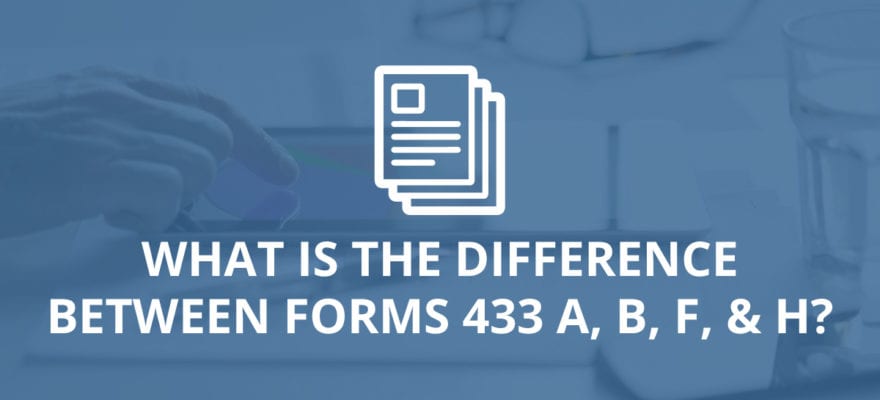When you can’t afford to pay your tax debt, the IRS relies on collection statement forms to determine if you are able to pay and, if so, what options are available to you. At present, it uses four forms:
While all of them provide the IRS with insight into your financial situation, they are not identical. In this blog, we’ll review the differences between them, which will dictate the one you use when you’re trying to come to a tax payment arrangement with the IRS.
IRS Form 433-A
This form is intended for individual wage earners and those who are self-employed. It consists of six pages and requires the following information from you:
- Your name, date of birth, and social security number
- Your driver’s license number
- Employment information for you and your spouse
- Any lawsuits against you
- Details about any life insurance policies or trust funds you may benefit from
- Your personal assets, such as real estate, motor vehicles, and bank accounts
- Your gross monthly business income and expenses (if self-employed)
- Business assets (if self-employed)
- Paycheck stubs and bank statements
- Credit card statements
- Your monthly living expenses, which includes rent, utilities, food, clothing, vehicle costs, health insurance, any out-of-pocket healthcare costs, and public transportation fees
- The taxes you owe for the current year
- Any court-ordered payment obligations you may have
- Secured and unsecured debts
- Miscellaneous expenses, such as tuition fees and student loan payments
If you want to resolve your tax situation with an Offer in Compromise (OIC), you will have to complete and submit Form 433-A (OIC), which is designed to collect the information the IRS needs to consider your offer. It is important to note that OICs are complicated to prepare and present, so you should work with a tax attorney who has a solid success rate in OIC acceptance.
IRS Form 433-B
If your business owes a tax debt that you want to pay via an installment plan or you want to temporarily delay payment due to hardship, you will likely be asked to complete Form 433-B. Like Form 433-A, it is a six-page document that requires detailed financial information, although in this case, the IRS is investigating your business.
Requested details include:
- The name of your business
- The date it was established
- Type of industry
- Contact information
- Number of employees
- The names, phone numbers, and social security numbers of any key parties, such as board members, major shareholders, and partners
- Any impending lawsuits against the business
- Any impending bankruptcy proceedings
- Debts owed by the business
- Company bank accounts and available credit
- Assets, such as equipment and motor vehicles
- Total monthly income and expenses
If you intend to make an Offer in Compromise, use Form 433-B (OIC).
IRS Form 433-F
This two-page form is a simplified version of Form 433-A. It is the most commonly-seen collection statement. If you do not qualify for a streamlined installment agreement (in other words, you owe more than $50,000) or can’t afford to pay anything at all, the IRS may ask you to complete this form, so it can determine whether you are eligible for a payment plan or Currently Non-Collectible status. You will have to provide the following information:
- Your social security number
- Contact information
- Information about your business (if you own one)
- Financial details, including your bank accounts and lines of credit
- Assets, such as real estate and motor vehicles
- Number of credit cards you have and how much you owe on each
- Employment information
- Any household income not earned via wages
- Your monthly living expenses
Form 433-H
Form 433-H is used for wage earners who are requesting an installment agreement and have a tax liability that is either greater than $50,000 or cannot be paid within 72 months. You have to provide financial information like the following:
- How much money you have in your various personal bank accounts
- Investment and cryptocurrency details
- Real estate holdings
- Other property, such as cars and life insurance policies
- Credit card balances
- Wage and non-wage income
- Household expenses
Speak with a New Jersey Tax Attorney
If you have been audited by the IRS and assigned a tax liability, contact Paladini Law for representation that will protect your interests. Attorney Brad Paladini will assist you in accurately completing whichever collection statement form you receive and presenting an acceptable installment plan or OIC. He has represented clients in several challenging tax situations with the IRS and used his years of experience to achieve the best results for their cases. To schedule a consultation, please call 201-381-4472 or complete our online form.



